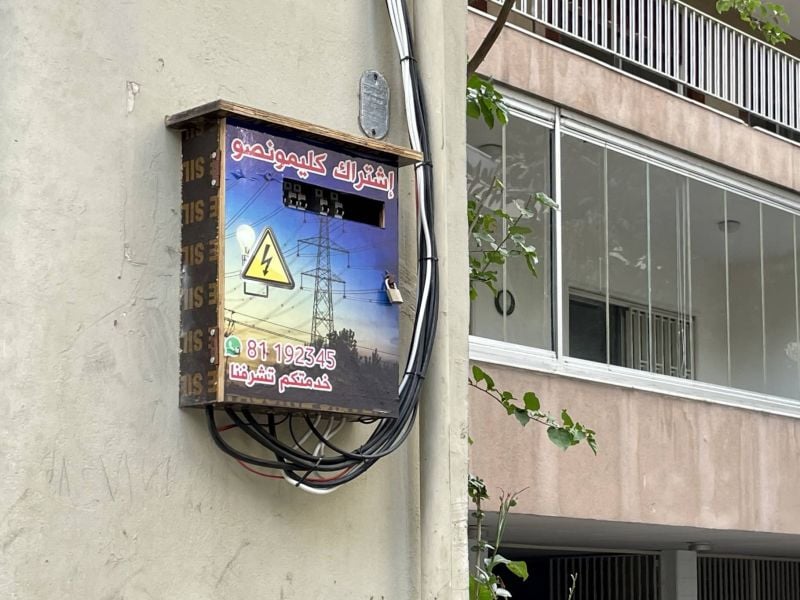
An electrical box installed by a generator owner in Beirut, May 30, 2024. (Credit: Illustration photo/P.H.B./L'OLJ)
The price per kilowatt-hour (kWh) for private or neighborhood generators, which supplement electricity shortages from Electricité du Liban (EDL), has decreased for the fifth consecutive month, now set at 31,725 Lebanese pounds (LL) for June bills, down from 32,269 LL in May, according to the grids published by the Ministry of Energy and Water.
This 1.7% decrease brings the total reduction over five months to nearly 7.5%, according to L'Orient Le-Jour calculations. The exchange rate used in the ministry's calculations remains constant at LL89,700 to the dollar. The average price of fuel oil has also dropped from LL1,627,264 per 20 liters in February to LL1,482,583 for June bills, a decrease of 8.9%, according to the ministry's calculations.
Per the norm, the ministry authorizes operators in mountainous regions — above 700 meters in altitude — and rural areas to increase the kWh price by 10%, bringing its price to 34,897 LL for June bills.
To calculate their bills, subscribers multiply the ministry-provided kWh price by their consumption, recorded on an individual meter installed by the generator owner — a flat fee, based on the maximum current in amperes (A), is also added.
For a maximum current of 5 A, the monthly flat rate is LL385,000, and for 10 A, it is LL685,000. Both rates remain unchanged. However, this month, the ministry is imposing a charge of LL300,000, which applies for every additional 5 A above 10 A.
The ministry also maintains specific rates for elevators and common areas in buildings with three-phase circuit breakers, calculating their fixed rates as if they were single-phase connections. For instance, an elevator and common areas with a three-phase circuit breaker of 3 x 15 A will be billed as if they have a capacity of 15 A —not 45 A— totaling LL985,000 instead of LL2,785,000.
Despite these official rates, some generator owners—operating illegally but tolerated—continue to charge flat-rate tariffs instead of installing individual meters. They also often demand fees to be paid in dollars, which is prohibited. Others go as far as imposing VAT on subscribers or adding extra fees for customers with solar panels.